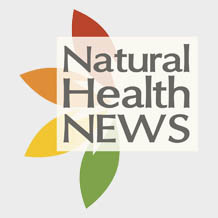
More evidence that low-calorie sweeteners are bad for your health
Studies show that artificial sweeteners can raise the risk of hypertension, metabolic syndrome, type 2 diabetes and heart disease, including stroke.

Natural Health News — Could high doses of resveratrol, over the long-term, help stabilise decline in in people with mild to moderate Alzheimer’s disease?
Resveratrol is a naturally occurring compound found in foods such as red grapes, raspberries, dark chocolate and some red wines. The recent study, however, used a pure synthetic (pharmaceutical-grade) resveratrol which is not yet available commercially. Nevertheless, some positive results point the way towards the possibility treatments based on this natural substance for a disease which is becoming more common in our ageing population.
The study involved 119 participants. The highest dose of resveratrol tested was one gram by mouth twice daily – equivalent to the amount found in about 1,000 bottles of red wine.
» Resveratrol is a naturally-occurring antioxidant found in foods such as red grapes, raspberries, dark chocolate and some red wines.
» Studies show it activates proteins called sirtuins, the same proteins activated by caloric restriction, and so may be useful in helping to treat age-related disease such as Alzheimer’s.
» Alzheimer’s sufferers put on a year-long regimen of very high dose pharmaceutical grade resveratrol showed some signs that a biomarker of Alzheimer’s, protein pieces called amyloid-betea40, had stabilised– though ore research is necessary to understand the mechanism.
The researchers then monitored levels of various biomarkers, including the protein amyloid-beta40 (Abeta40) levels of which decline as the disease progresses.
Keeping things stable
According the results, published in the journal Neurology, those who were treated with increasing doses of resveratrol over 12 months showed little or no change in amyloid-beta40 (Abeta40) levels. In contrast, those taking a placebo had a decrease in the levels of Abeta40 compared with their levels at the beginning of the study.
“A decrease in Abeta40 is seen as dementia worsens and Alzheimer’s disease progresses explains R. Scott Turner, MD, PhD, director of the Memory Disorders Program at Georgetown University Medical Center. He notes that it’s impossible to conclude form one study that resveratrol treatment is beneficial, he adds, “It does appear that resveratrol was able to penetrate the blood brain barrier, which is an important observation. Resveratrol was measured in both blood and cerebrospinal fluid.”
The researchers studied resveratrol because it activates proteins called sirtuins, the same proteins activated by caloric restriction. The biggest risk factor for developing Alzheimer’s is aging, and studies with animals found that most age-related diseases – including Alzheimer’s – can be prevented or delayed by long-term caloric restriction (consuming two-thirds the normal caloric intake).
Reducing brain inflammation
Turner says the study also found that resveratrol was safe and well tolerated. The most common side effects experienced by participants were gastrointestinal-related, including nausea and diarrhoea. Also, patients taking resveratrol experienced weight loss while those on placebo gained weight.
One outcome in particular was puzzling, Turner notes. The researchers obtained brain MRI scans on participants before and after the study, and found that resveratrol-treated patients lost more brain volume than the placebo-treated group.
“We’re not sure how to interpret this finding. A similar decrease in brain volume was found with some anti-amyloid immunotherapy trials,” Turner adds. One thought is that the treatments may reduce inflammation (or brain swelling) found with Alzheimer’s.
Resveratrol and similar compounds are being tested in many age-related disorders including cancer, diabetes and neurodegenerative disorders. However, this study, says Turner, is the largest, longest and highest dose trial of resveratrol in humans to date.

Please subscribe me to your newsletter mailing list. I have read the
privacy statement